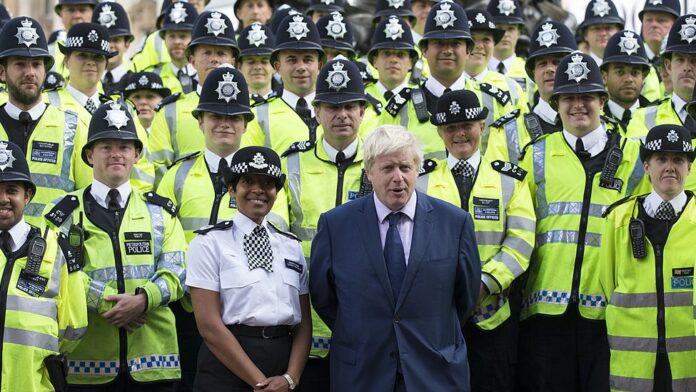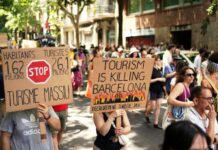We all know – or far too many of us know – the series of emotions you experience when you realise you have been a victim of crime. By BORIS JOHNSON, PRIME MINISTER
In the case of theft, there is the initial puzzlement or confusion. Did I leave that window open? Maybe I parked my car or locked my bike somewhere else?
And then there is the sense of shock, and violation, when you realise that it’s true – someone has invaded your life, taken something you love or value or need.
Then there is fury. At that moment you need to tell someone – and you want that someone to do everything in their power to sort it out.
In these moments of rage and powerlessness, we need the police – and it is absolutely vital that the police are there for us.
This government is utterly dedicated to fighting and beating crime. I want to bring the same focus to national crime fighting that we brought to London during my eight-year tenure as Mayor.
By backing the outstanding men and women of the Met, we helped to bring crime overall down by about 20 percent, and the murder rate down by 50 percent.
Making this country safe is the single best and most effective way of levelling up – so that young people grow up in safer neighbourhoods everywhere.
I want rural communities to be safer from burglary and vandalism. I want our towns and coastal resorts to be purged of the county lines gangs. I want our inner cities to be free of knives and guns.
And we are making some progress. We have already recruited almost half of the 20,000 new police officers that we promised in the 2019 election.
We are working with our new police and crime commissioners to help ensure that they are out fighting neighbourhood crime; because there is always a risk — with the growth of online fraud and cybercrime — that officers will be kept behind their screens rather than being able to get out on the streets.
We have already rolled up about a third of the county lines gangs. We have given the police new powers to stop and search, and with a new £25m fund for better lighting and more CCTV we are turning the spotlight on street crime, and helping to make neighbourhoods feel safer – especially for women after dark.
We are imposing tougher sentences for serious sexual and violent offenders, and building the necessary prison places, because we believe the punishment should fit the crime.
But we want to go further. We want to deal with all types of crime – including anti-social behaviour.
We want to deal with that sense of powerlessness and rage that you experience when you become a victim of crime. We want you to have a named individual officer — wherever you live — to be the person on the end of the phone.
This week we are publishing an all-new Beating Crime plan, by which every community in the country will soon have a named police contact, an officer who knows the strengths and the potential vulnerabilities of your area.
And that means you will have an officer on call who is able to see the crime in context – to know if it is part of a pattern or a one-off, so that serious problems are not just treated as minor irritants.
We will publish league tables for 101 and 999 call answering times, we will put more police into dealing with the tiny minority of truant kids, and we will massively expand the tagging of offenders.
We will intensify the successful ADDER programme – the war against the county lines drug gangs, putting a ring of steel around the affected towns until we throttle the life out of the gangs.
And we must deal with the underlying incentives of these gangs – the drugs trade that is driven not just by the 300,000 “problem users” but by relatively affluent people who are also fuelling demand.
We are bringing the police together with employers and health experts to develop sensible and practical steps that we can take — as a society — to cut drug abuse across the country.
As I write, crime is well down year on year. The murder rate is down 16 percent, serious violence down 11 percent, and neighbourhood crime is down a third. That is encouraging.
But we also know that to some extent these figures have been helped by the pandemic. When we locked down the country, we locked down many of the criminals as well.
We now need to redouble our efforts, to continue to put more police out on the street, and to back them all the way.
And we want everyone to know that if you are the victim of crime, you have a named officer to call – someone who is immediately on your side. / express co uk














